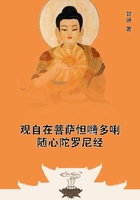Furthermore, the reservations[7] of benefices were another fruitful source of revenue. The policy of reserving benefices to the Holy See might be defended, on the ground that it was often necessary in order to counterbalance the interference of secular rulers in regard to ecclesiastical appointments, and that it afforded the Pope a convenient means of rewarding officials whose services were required for the government of the Church. But the right of the Pope to reserve benefices was abused during the fourteenth and fifteenth centuries, and gave rise to constant friction with the civil and ecclesiastical authorities in different countries of Europe. Reservations, instead of being the exception, became very general, and, as a result, the eyes of all ambitious clerics were turned towards Rome from which they hoped to receive promotion, whether their immediate superiors deemed them worthy or unworthy. Such a state of affairs opened the way to the most serious abuses, and not unfrequently to disedifying wrangles between rival candidates, all of whom claimed to have received their appointments from Roman officials.
Intimately connected with papal reservations were expectancies or promises given to certain persons that they would be appointed to certain benefices as soon as a vacancy would occur. Such promises of appointment were unknown in the Church before the twelfth century, but later on they became very general, and led to most serious abuses during the residence of the Popes at Avignon and during the disturbances caused by the Great Western Schism. Expectancies were adopted as a means of raising money or of securing support. Various attempts were made to put an end to such a disastrous practice, as for example at the Councils of Constance and Basle, but it was reserved for the Council of Trent to effect this much needed reform.
Again the custom of handing over benefices /in commendam/, that is of giving some person the right of drawing the revenues of a vacant benefice for a certain specified time, was highly prejudicial to the best interests of religion. Such a practice, however justifiable in case of benefices to which the care of souls was not attached, was entirely indefensible when adopted in regard to bishopric, abbacies, and minor benefices, where so much depended upon personal activity and example. The person who held the benefice /in commendam/ did nothing except to draw the revenue attached to his office, while the whole work was committed to an underpaid vicar or representative, who was obliged often to resort to all kinds of devices to secure sufficient means of support. Again though plurality of benefices was prohibited by several decrees, yet during the fourteenth and fifteenth centuries nothing was more common than to find one individual holding, by virtue of a papal dispensation, two, three, six, ten, and possibly more benefices to most of which the care of souls was attached. Such a state of affairs was regarded as an intolerable scandal by right minded Christians, whether lay or cleric, and was condemned by decrees of Popes and councils; but as exceptions were made in favour of cardinals or princes, and as even outside these cases dispensations were given frequently, the evils of plurality continued unabated.
Again, the frequent applications for and concessions of dispensations in canonical irregularities by the Roman congregations were likely to make a bad impression, and to arouse the suspicion that wholesome regulations were being abandoned for the sake of the dispensation fees paid to the officials. Similarly, too, complaints were made about the dispensations given in the marriage impediments, and the abuses alleged against preachers to whose charge the duty of preaching indulgences was committed. Furthermore, the custom of accepting appeals in the Roman Courts, even when the matters in dispute were of the most trivial kind, was prejudicial to the local authorities, while the undue prolongation of such suits left the Roman lawyers exposed to the charge of making fees rather than justice the motive of their exertions.















